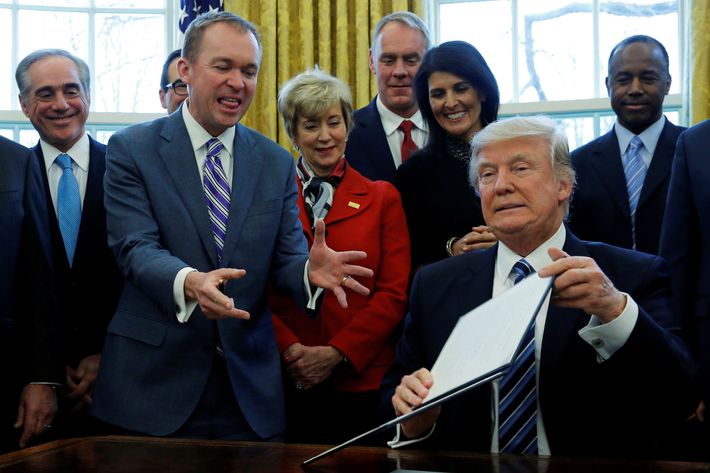Bushonomics Is Back Because the GOP Has No Other Ideas

The last time Republicans had control of government, they explained that cutting taxes would not get in the way of fiscal responsibility. Not only would tax cuts produce faster growth, they argued, they would also force Congress to restrain spending. Their strategy utterly failed. Not only did the tax cuts fail to produce higher growth, they also failed to encourage spending restraint.
Indeed, the latter failure was so conspicuous that, for a short period of time, it became the cri de coeur of a large segment of the Republican Party. The Bush administration’s excessive spending allegedly inspired the tea party revolt. Mick Mulvaney reportedly “launched his political career because he thought Republicans were spending too much in the George W. Bush era.”
Now that Republicans have regained control of government, they are replicating the same policy agenda, with more or less the same rationale. Mulvaney, who rose from tea party bomb-thrower outraged at the profligacy of the Bush administration to White House budget director, would like to cut trillions of dollars from the budget. But he acknowledges that the spending reductions aren’t going to happen anytime soon. “They simply do not have the political will on the Hill to solve this through the spending side of the equation,” he now tells Politico. “So we have to move to the revenue side.”
And so there they are, back to the exact same policy they tried in 2001: Pass a huge tax cut and hope somehow it leads to cutting spending. That this policy is now being carried out by the same people who rose to power by denouncing the failure of the exact same policy last time tells you everything you need to know about the state of economic policy thought in the Republican Party now.
No comments:
Post a Comment